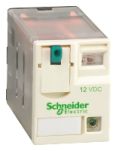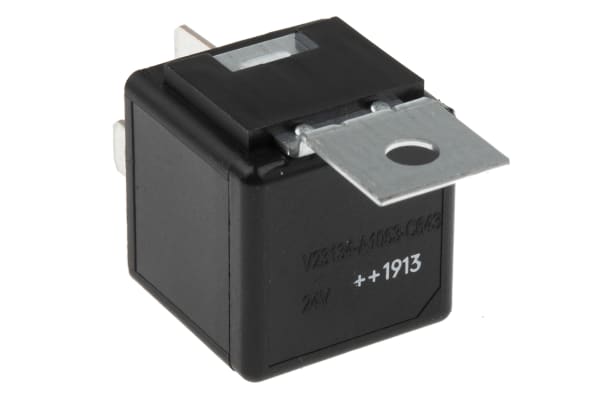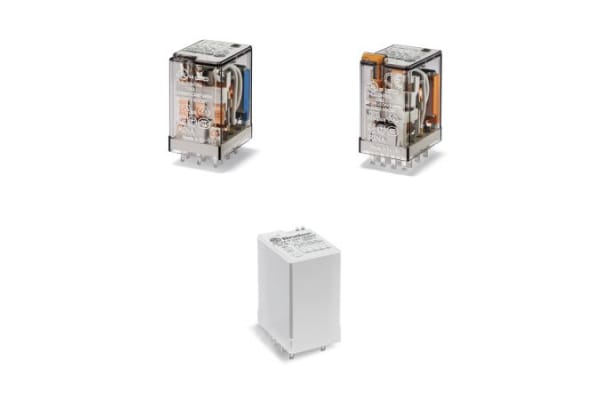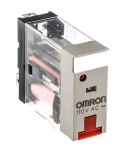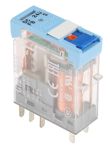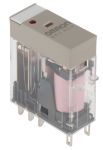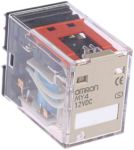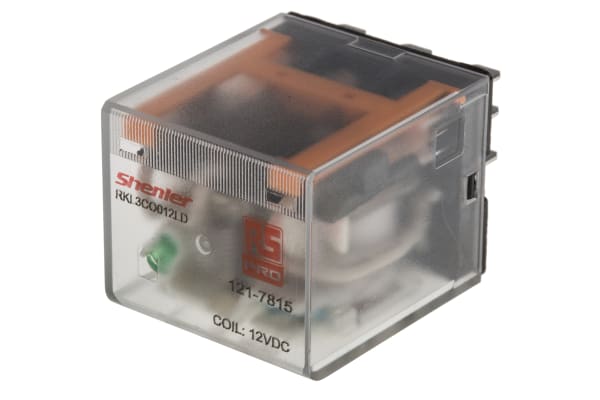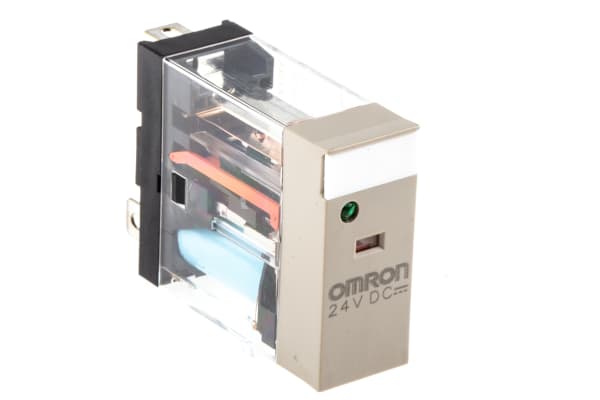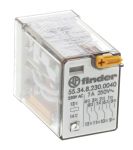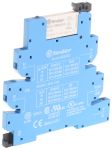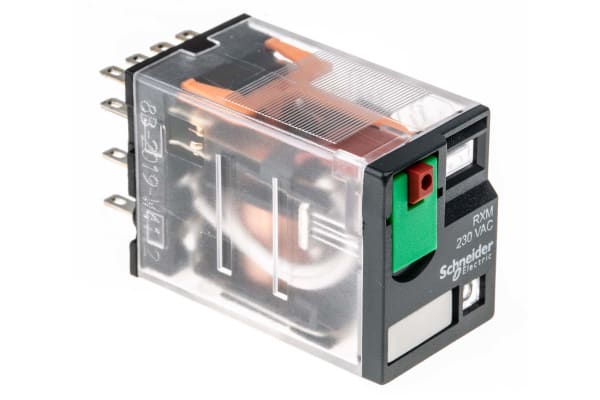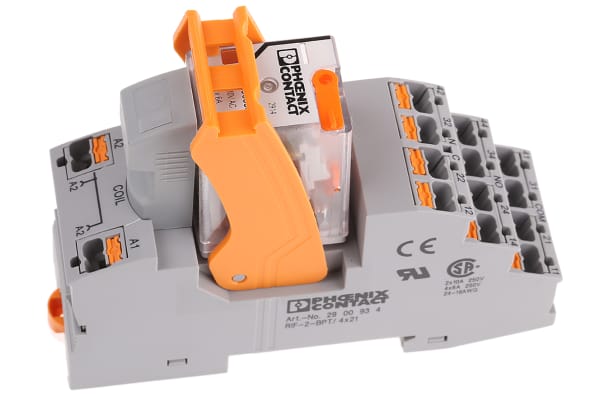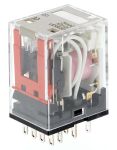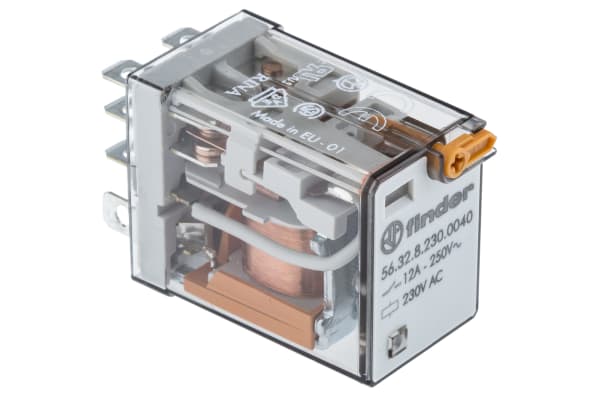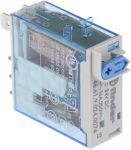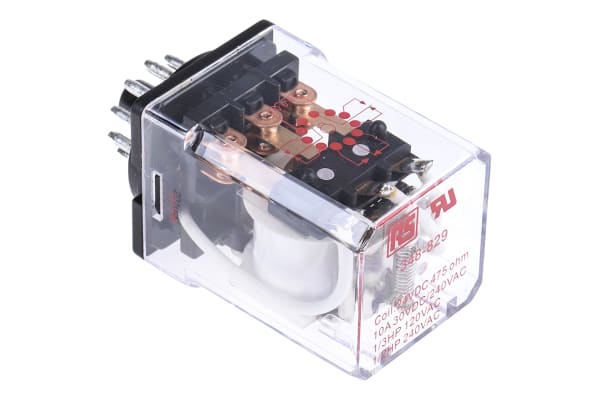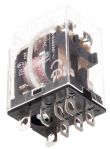Non-Latching Relays
Relays are electrical switches that are operated by electrical impulses with the primary function to open and close a circuit, they can also be referred to as industrial switches. There are 2 main types available, latching and non–latching relays.How do non-latching relays work?Non-latching relays are in a normally closed (NC) position and will stay in this state without power. When power passes through the circuit, the relay switched to a normally open (NO) position by using an internal coil to generate a magnetic force, holding this NO position. Once the current is turned off, it returns to the NC position. This makes non-latching relays well suited to push-button applications like keyboards and micro-controller input buttons.What are non-latching relays used for?Non-latching relays are highly durable and versatile components, making their performance long lasting and suitable for use in a wide range of applications, such as:Automotive enginesHousehold appliancesIndustrial machineryMedical equipmentTelecommunications equipmentWhat is the difference between latching and non-latching relays?Both types of relays in similar in design and function, however, a significant difference between them is that a latching relay will remain in the last position it when it was last powered, whereas a non-latching goes back to its normal position. This makes each more type of relay suitable for different applications. Considerations when selecting a relayWhen choosing a relay, it is important to consider a number of specifications to ensure it is fit for purpose, some factors include:Coil voltage – the required voltage to actuate the switching mechanism. If a voltage is too high this could damage the components, if it is too low then it will not actuate. Contact configuration – This is the state the contacts are in without power. For example SPST, single pole single throw.Contact material – the relay contacts are available in many materials that have certain properties. Common materials are gold, silver, tin oxide and nickel Coil power – the amount of power (watts) the coil operates at. This must match the power in the circuit for correct function. Coil resistance – the amount of resistance (ohms) in the circuit that the coil creates.
-
Schneider Electric, 12V dc Coil Non-Latching Relay 4PDT, 3A Switching Current Plug In, 4 Pole, RXM4GB2JD
IDR130,378.27 -
TE Connectivity, 24V dc Coil Automotive Relay SPDT, 40A Switching Current Plug In Single Pole, V23134A1053C643
IDR195,200.29 -
Schneider Electric, 230V ac Coil Non-Latching Relay DPDT, 15 A @ 250 V ac, 15 A @ 28 V dc Switching Current, 2 Pole,
IDR214,500.05 -
Omron, 100/110V dc Coil Non-Latching Relay 4PDT, 5A Switching Current Plug In, 4 Pole, MY4IN 100/110DC(S)
IDR212,087.58 -
Finder, 24V dc Coil Non-Latching Relay 4PDT, 7A Switching Current PCB Mount, 4 Pole, 55.34.9.024.0090
IDR210,828.90 -
Omron, 110V ac Coil Non-Latching Relay SPDT, 10A Switching Current PCB Mount Single Pole, G2R-1-SNI 110AC(S)
IDR226,247.73 -
Releco, 24V dc Coil Non-Latching Relay DPDT, 5A Switching Current PCB Mount, 2 Pole, C12A21X24D
IDR211,668.02 -
Omron, 24V ac Coil Non-Latching Relay DPDT, 5A Switching Current Plug In, 2 Pole, G2R-2-SN 24AC(S)
IDR293,167.55 -
Omron, 12V dc Coil Non-Latching Relay 4PDT, 5A Switching Current Plug In, 4 Pole, MY4 12DC(S)
IDR181,249.92 -
Panasonic SPDT Non-Latching Relay PCB Mount, 5V dc Coil, 6 A
IDR219,429.88 -
RS PRO, 12V dc Coil Non-Latching Relay 3PDT, 10A Switching Current Plug In, 3 Pole
IDR187,123.76 -
Omron, 24V dc Coil Non-Latching Relay SPDT, 10A Switching Current Plug In Single Pole, G2R-1-SN 24DC(S)
IDR244,079.03 -
Finder, 230V ac Coil Non-Latching Relay 4PDT, 7A Switching Current Plug In, 4 Pole, 55.34.8.230.0054
IDR227,506.41 -
Finder, 230V ac Coil Non-Latching Relay 4PDT, 7A Switching Current Plug In, 4 Pole, 55.34.8.230.0040
IDR223,205.92 -
Finder, 6V ac/dc Coil Relay Interface Module SPDT, 6A Switching Current DIN Rail Single Pole, 39.11.0.006.0060
IDR212,821.81 -
Schneider Electric, 230V ac Coil Non-Latching Relay 4PDT, 8A Switching Current Plug In, 4 Pole, RXM4AB2P7
IDR205,689.29 -
Phoenix Contact, 230V ac Coil Non-Latching Relay 4PDT, 5A Switching Current DIN Rail, 4 Pole, 2903304
IDR235,792.72 -
Omron, 24V ac Coil Non-Latching Relay 4PDT, 5A Switching Current Plug In, 4 Pole, MY4N 24AC(S)
IDR214,185.38 -
Finder, 12V dc Coil Non-Latching Relay 4PDT, 7A Switching Current PCB Mount, 4 Pole, 55.14.9.012.0000
IDR197,402.98 -
Finder, 230V ac Coil Non-Latching Relay DPDT, 12A Switching Current Plug In, 2 Pole, 56.32.8.230.0040
IDR316,662.91 -
Finder, 24V dc Coil Non-Latching Relay SPDT, 16A Switching Current Plug In Single Pole, 46.61.9.024.0074
IDR162,159.94 -
RS PRO, 24V dc Coil Non-Latching Relay 3PDT, 10A Switching Current Plug In, 3 Pole
IDR123,875.09 -
TE Connectivity, 24V dc Coil Non-Latching Relay DPDT, 8A Switching Current PCB Mount, 2 Pole, RP421024
IDR280,056.30 -
Omron, 240V ac Coil Non-Latching Relay DPDT, 10A Switching Current Plug In, 2 Pole, LY2AC220/240
IDR226,667.29



